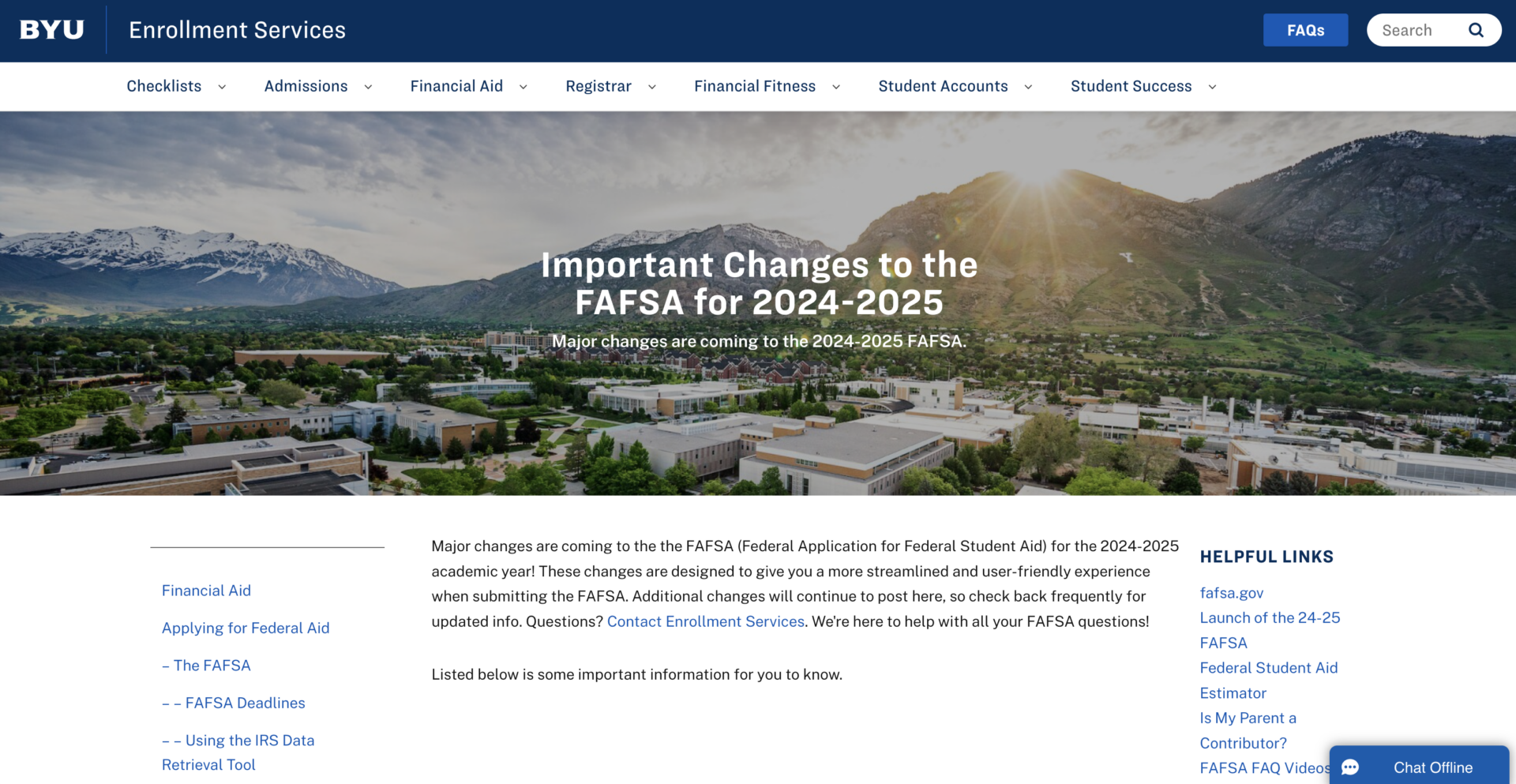
Recent modifications to the Free Application for Federal Student Aid process implemented by The U.S. Department of Education have raised varied responses among BYU students.
With the start of the academic year, BYU students juggled new semester schedules while applying for scholarship applications and other financial aid, including FAFSA.
“When the new stuff came out in the system, that was kind of harder to do,” Abraham Gutierrez, a freshman studying social science, said. “The site went down and came back up a couple of times. It was a whole jumbled mess.”
Some students, however, like exercise and wellness junior Jordan Rush, encountered fewer difficulties.
“It was a little more complicated but nothing major,” Rush said. “It just wasn’t the same as last year’s but I got it figured out.”
Shawn Hancock, Associate Director of Financial Aid at BYU, provided insights into these changes, discussing their potential pros and cons.
“They’re still working through bugs in the application,” Hancock said. “Whether the changes benefit or hurt students is to be determined.”
While ultimately designed to make things easier for students in the long run, the FAFSA changes were slowly implemented.
“The Department of Education has had to push back the time frame for the application to be open. Normally it’s open in October, but due to the changes, they didn’t open the application until Dec. 31, 2023,” Hancock said.
To accommodate the delayed application process, BYU extended the deadline for need-based scholarships to March 5 from the traditional Jan. 20 cutoff.
Aside from the technical difficulties, several improvements include a reduced total number of questions on the FAFSA from 108 to 46, introducing IRS Direct Data Exchange (DDX) and simplifying reporting parent information.
Now parents can create a Federal Student Aid ID without providing a Social Security number and can sign forms electronically. This change is potentially beneficial for parents who previously faced difficulties with signing the application, including those who are not U.S. citizens.
However, a key concern arises from the change in the financial aid formula.
“In the new formula, the number of students from a household in college as an eligibility metric is no longer considered,” Hancock said. “This might be of detriment for BYU students from households with multiple students in college.”
A family with more students in college would have previously benefited because it would be considered more costly to the family.
According to the National Center for Education Statistics, 32% of students at BYU earn financial aid packages averaging $5,353 per school year. With the new vetting process, more students may qualify for Pell Grant funds, however these may be for smaller amounts.
While BYU cannot directly intervene in the government-run FAFSA program, students are advised to refer to the FAFSA hotline (1-800-433-3243) for assistance.
For the latest updates on FAFSA and scholarship opportunities, students are encouraged to visit the BYU enrollment website.




